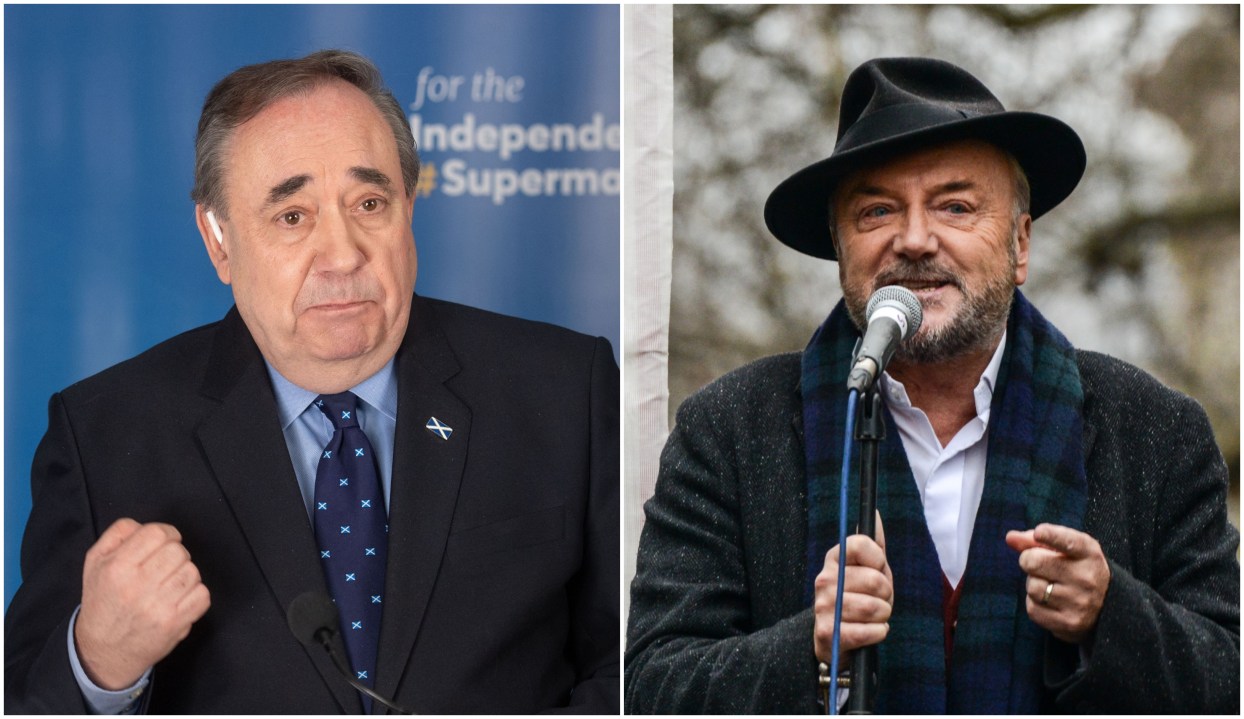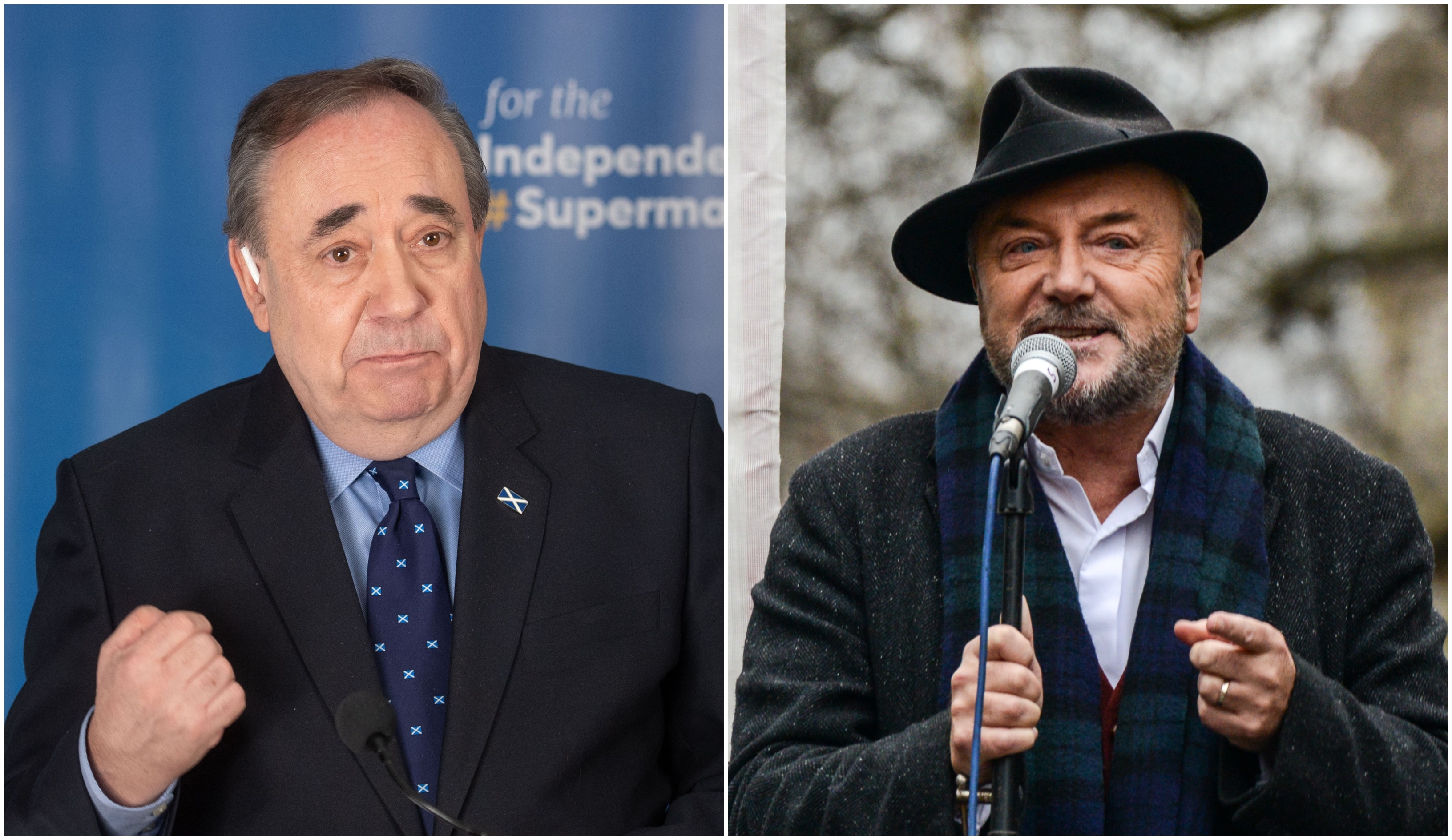The death of the Duke of Edinburgh has paused campaigning in the Scottish Parliament election, which provides an opportunity to reflect on just how bizarre the election is proving to be. Naturally, the SNP is far ahead in the polls, on 53 per cent of the constituency vote in this week’s Ipsos-MORI research. SNP dominance is now as hard-wired into Scottish politics as Labour dominance once was and the new religion is just as unmoved as the old one by heresies about policy failings or poor governance.
What is uncanny is that nationalists and Unionists have simultaneously gone into revolt against their own side weeks out from polling day. Each rebellion has discrete causes but both reflect a desire for more hardline politics, even at the expense of their respective constitutional causes. There is a rage vote out there and opportunists looking to fill it.
The SNP and Scottish Greens have to contend with Alex Salmond’s Alba Party, which is contesting on the regional lists in hopes of securing what it calls ‘a supermajority for independence’. Alba is born out of Salmond’s break with Nicola Sturgeon and follows the saga over what she knew and when she knew it in relation to sexual harassment allegations against her predecessor.
A civil court found the Scottish government’s internal investigation into Salmond unlawful while a criminal court acquitted him on all charges of sexual assault. He claims there was a plot by senior figures around Sturgeon to remove him from public life, something she denies. One inquiry cleared her of breaking the ministerial code, another concluded she had misled the investigating committee.
There is a rage vote out there and opportunists looking to fill it
The scandal did not bring down Sturgeon and so revenge is being sought in the guise of a campaign to maximise pro-independence votes. If the SNP and their Green allies fall short of a majority after 6 May, Sturgeon would have to rely on supply and confidence from her mentor-turned-archnemesis. She would be severely weakened and it’s an open question whether she would wish to stay on in these circumstances.
Observers of Australian politics could be forgiven for feeling a skerrick of déjà vu. Aussie Labor swept to victory in 2007 under the leadership ‘dream team’ of Kevin Rudd and Julia Gillard. He was more conservative, she more progressive. He was seen as the best bet to win over sceptical voters but her ambitions were understood and acknowledged.
Three years later, he was removed by his own MPs and replaced by Gillard, with one of his ministers later saying ‘this act of political bastardry was made possible only because Kevin had been such a bastard himself to too many people’. (There is no suggestion of behaviour comparable to that alleged in the Salmond affair. Gillard claims there was ‘a bullying encounter’, which Rudd denies.)
In the run-up to the 2010 election, Gillard was dogged by leaks from an extraordinarily well-placed Labor source and went on to lose the government’s majority. She could cling on only by cutting deals with the crossbenchers and was forced to bring Rudd back into the Cabinet as foreign minister, but she continued to be destabilised and, after a couple of false starts, Rudd wrestled the leadership back from her in 2013. Three months later, Labor lost the election in a landslide and has been out of power ever since. The parallels are not exact but the echoes are unmistakable. Nicola Sturgeon is being Gillarded.
Gillarding will prove as counterproductive to the SNP and the nationalist movement as it was to the Australian Labor Party. The SNP is the dominant force in pro-independence politics, the only viable vehicle for reaching the end destination and one that must be manoeuvred with care and precision. Alba is an audacious lunge for the steering wheel and one that could end up in a ravine. That Alba’s vote-splitting might deny the SNP a few seats — without electing a single Alba candidate — is a minor inconvenience compared to the alternative in which a clutch of them end up in Holyrood, possibly wielding the balance of power.
The SNP would lose its effective monopoly on parliamentary nationalism and the independence cause would acquire a new face, one that reflects the dreams of true believers but does not account for the apprehension, uncertainty and caution of Middle Scotland. Talk of confrontation with Westminster and street demonstrations might gin up the faithful but it places salvation farther away. Yet a Panelbase poll has suggested Alba could pick up six seats. There are a remarkable number of votes in punching yourself in the face.
On the other side of constitutional politics, some Unionist voters are readying their own noses for a good knuckling. The Conservatives, Labour and Liberal Democrats are being harried by the awkwardly-named All4Unity, which presents itself as a pro-Union ‘alliance’ even though none of the pro-Union parties have anything to do with it. At root, it is the latest medium for George Galloway’s politically and geographically peripatetic electoral career. On paper, it and he shouldn’t stand a chance. Galloway last won an election in Scotland in 2001 and managed 3.3 per cent of the vote when he stood on the Glasgow list in 2011. So far only one poll has projected him to secure a seat this time.
All4Unity’s pitch is that it will be more belligerent towards the SNP than the other opposition parties, a selling point for a hardcore minority who confuse anti-Sturgeonism with pro-Unionism. They voted Tory last time, if they voted at all, but now they want someone who sounds as angry as they feel. The Union itself barely factors in this transaction and All4Unity’s distinct iffiness on the subject hardly seems to register.
Galloway said in 2017 that Westminster denying Holyrood a second independence referendum would be ‘a democratic monstrosity’. He refused to join the Better Together campaign in 2014, in his words, ‘because it’s a Unionist campaign, because it flies the Union Jack. I hate the Union Jack’, before adding: ‘I would never work with Tories. I hate Tories. With every beat of my heart I hate them more.’ He went on, quoting Aneurin Bevan, to call the Tories ‘lower than vermin’.
In 2017, he said: ‘Time for a United Ireland. There’s no place in a modern Britain for a sectarian province like “Northern Ireland”.’ The following year he described Northern Ireland as ‘the occupation of six counties of someone else’s country’ and later declared it ‘should have never been in the British state in the first place’. All4Unity is a clunky name but I suppose Sinn Fein was already taken.
Like Alba, an All4Unity breakthrough would place before the average Scottish voter the worst possible representation of Unionism. Unlike Alba, All4Unity can do the pro-Union parties severe damage without winning any seats, because those parties, especially Labour and the Conservatives, are heavily dependent on these ‘top-up’ seats.
It’s difficult to gauge how well either of these outfits will do, but there is an audience for them. To some extent, they reflect a very Scottish thrawnness. Some people are so pro-independence they plan to vote against the main pro-independence party, others so anti-indyref2 they intend to vote for someone who called for indyref2. This election couldn’t be more Scottish if it was staggering along Sauchiehall Street at 3am in a See You Jimmy hat trying to pick a fight with a pizza crunch about whether Andy Murray is Scottish or British.
What we don’t yet know is whether the sort of voters Alba and All4Unity are targeting will spurn them, pull back from the brink at the last minute or, having told the pollsters one thing, do another in the privacy of the polling booth. Rage-voting might prove to be all the rage.








Comments